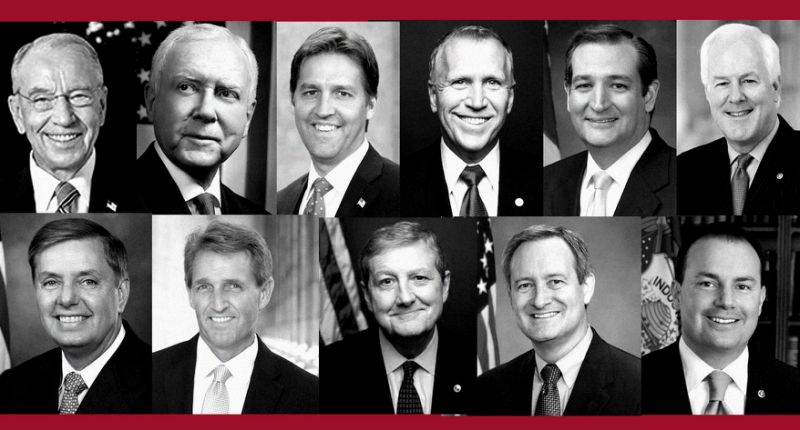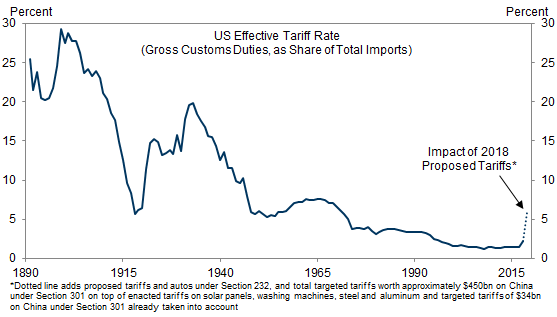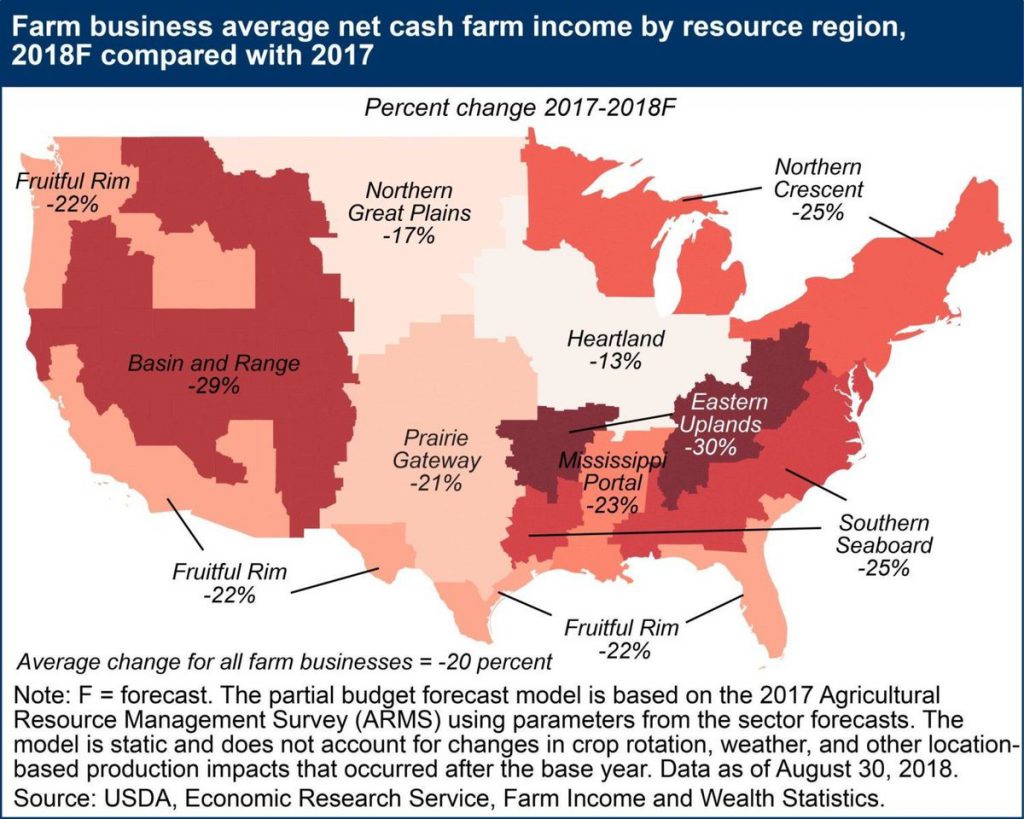In the aftermath of the Salzburg summit, where the Chequers plan was dismissed by the EU, and PM May demanded “respect”, the pound has plunged.
“Spreads between U.S. & Brazil Soybean Export Prices Widen to a Record”
That’s the caption to this graph:
Continue reading
Huzzah! Three and a Half Years Late, Walker Hits His +250K Jobs Promise
As Wisconsinites will recall, as late as August 2013, Governor Walker was reiterating his promise to create 250,000 new private sector jobs by the end of his first term (January 2015). As of July 2018, Wisconsin’s private sector net job creation surpassed Walker’s promised target — a full 3.5 years late.
Continue reading
W/o Comment: Senate Judiciary Committee – GOP Members

Note: Republican members of the Senate Judiciary Committee (from top left): Chuck Grassley, Orrin Hatch, Ben Sasse, Thom Tillis, Ted Cruz, John Cornyn; (from bottom left) Lindsey Graham, Jeff Flake, John Kennedy, Mike Crapo and Mike Lee. (Photos: U.S. Senate). Source: Yahoo.
From the Front Lines of the (Soybean) Wars
Reuters has an interesting article, entitled “Inside China’s strategy in the soybean trade war”.
Mu Yan Kui … ticked off a six-part strategy to slash Chinese consumption and tap alternate supplies with little financial pain.
Council on Foreign Relations International Affairs Fellowship in International Economics
The International Affairs Fellowship (IAF) in International Economics, sponsored by Kimberly Querrey, offers business economists as well as university-based economics scholars hands-on experience in the U.S. government to expand their range of thinking and work on international economic policy. Possible host placements for the fellowship appointment include but are not limited to the U.S. Department of the Treasury, U.S. Department of Commerce, the Federal Reserve Bank, and relevant parts of the U.S. Department of State and the White House [so the Fed, the IMF, the World Bank, the Treasury or any other policy institution are also possibilities]. The IAF in International Economics aims to enrich the teaching, scholarship, and research of academics, inform the practice of business economists, and expose policymakers to cutting edge scholarly research and academic debates.
For more information, see here.
The Long Run Elasticity of Farm Product Prices and the US Dollar
Expansionary fiscal policy combined with Taylor-rule induced monetary tightening has resulted in a strong dollar. That strong dollar is driving US agricultural prices.
(Still) Waiting for Recovery in US Soybean Prices (Levels, Relative)
November soybean futures keep on going down. And the US-Brazil spread has proven durable.
Continue reading
New Tariffs on Chinese Imports
As part of the United States’ continuing response to China’s theft of American intellectual property and forced transfer of American technology, the Office of the United States Trade Representative (USTR) today released a list of approximately $200 billion worth of Chinese imports that will be subject to additional tariffs. In accordance with the direction of President Trump, the additional tariffs will be effective starting September 24, 2018, and initially will be in the amount of 10 percent. Starting January 1, 2019, the level of the additional tariffs will increase to 25 percent.
The list contains 5,745 full or partial lines of the original 6,031 tariff lines that were on a proposed list of Chinese imports announced on July 10, 2018. …
Implied US tariff overall tariff rates, from GS:

Source: Hatzius et al., “The Trade War: An Update,” Goldman Sachs June 25 2018.
Haven’t seen the Chinese back down so far, as some sanctions enthusiasts have predicted. If the demand is for China to give up on Made in China 2025, I’m guessing the Chinese are not going to back down in effect.
Farm Country Gets What It Voted For
From Yahoo Finance:

Tariffs imposed as retaliation for US tariffs worsen the US terms of trade (i.e., lower ag export prices), and a strong dollar lowers US ag prices. Rising interest rates due to the collision of monetary and fiscal policies worsens the debt service load of the ag sector, while reducing farmland prices.
Thanks, Trump!